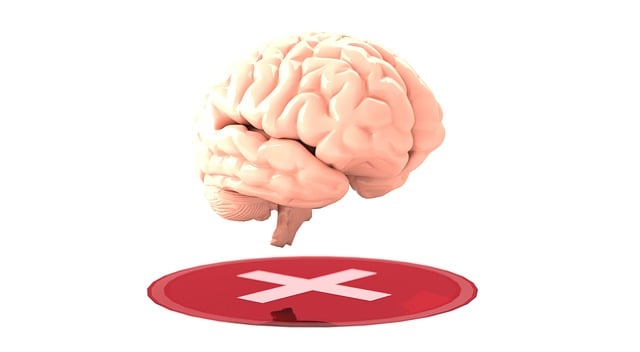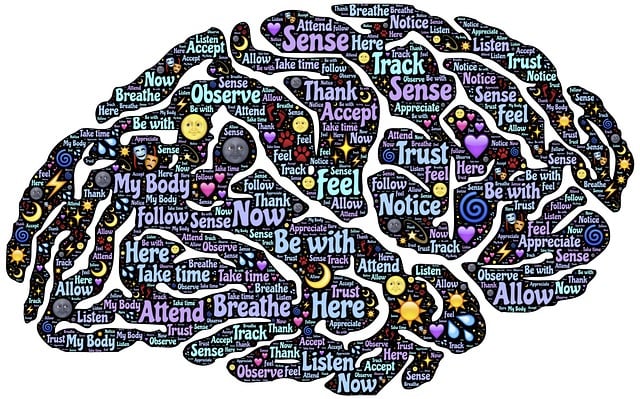Acceder a servicios de terapia culturalmente competentes para adultos hispanohablantes es esencial para una atención efectiva de la salud mental. Una evaluación inicial detallada, terapias adaptadas a necesidades culturales específicas, y el uso de intérpretes o expertos en cultura hispana aseguran una comunicación clara y un espacio seguro para abordar síntomas de trastornos como depresión, ansiedad y trauma. La educación en salud mental específica para latinos, junto con redes de apoyo sólidas, promueven la gestión del estrés y el bienestar general. Estrategias como el uso de lenguaje accesible, ejemplos relatables y materiales culturalmente relevantes mejoran la terapia y reducen el estigma, especialmente dentro de las comunidades Latinx.
Mental illness diagnosis and treatment navigation can be complex, especially for Spanish-speaking adults. This guide breaks down the process, offering insights into understanding mental health diagnoses in Spanish. It highlights the importance of accessing culturally competent therapy services within your community. Additionally, it navigates treatment options, builds supportive networks, and provides effective communication strategies for successful therapy sessions, catering to the unique needs of Spanish-speaking patients.
- Understanding Mental Health Diagnoses: Breaking Down the Process for Spanish-Speaking Adults
- Accessing Culturally Competent Therapy Services in Your Community
- Navigating Treatment Options: Medication, Psychotherapy, and Alternative Approaches
- Building a Supportive Network: Family, Friends, and Support Groups for Adult Mental Health
- Effective Communication Strategies for Spanish-Speaking Patients During Therapy Sessions
Understanding Mental Health Diagnoses: Breaking Down the Process for Spanish-Speaking Adults

Comprender un diagnóstico de salud mental es fundamental para navegar efectivamente el camino hacia la recuperación. Para los adultos que hablan español, este proceso puede ser aún más complejo debido a barreras culturales y lingüísticas. Es esencial que las personas se sientan cómodas y comprendidas durante cada paso del diagnóstico y tratamiento.
La evaluación inicial suele involucrar una entrevista detallada con un profesional de la salud mental, quien explora síntomas, experiencias pasadas y factores estresantes actuales. Este proceso puede incluir preguntas sobre sentimientos, pensamientos y comportamientos para identificar posibles trastornos como depresión, ansiedad o traumas ocultos. Al utilizar intérpretes o profesionales capacitados en cultura hispana, se garantiza una comunicación clara y precisa, permitiendo un espacio seguro para compartir información vital. La terapia para adultos que hablan español ofrece un entorno adaptado donde se abordan no solo los síntomas, sino también las necesidades culturales específicas para lograr una depresión prevención, gestión del estrés y trauma support services efectivos.
Accessing Culturally Competent Therapy Services in Your Community

Accessing therapy services that align with your cultural background and language preferences is an essential aspect of effective mental health care. Many communities offer culturally competent therapy options tailored to meet the unique needs of diverse populations, including Spanish-speaking adults. These specialized services recognize and appreciate cultural differences in beliefs, values, and communication styles, ensuring a safe and supportive environment for individuals to seek support.
For Spanish-speaking adults, finding therapists who are fluent in their native language and have experience working with similar communities can significantly enhance treatment outcomes. This approach fosters better understanding, encourages open communication, and boosts confidence during the therapy process. Several organizations also provide mental health education programs designed specifically for Latino or Hispanic individuals, addressing cultural barriers and promoting stress management techniques through workshops and group sessions.
Navigating Treatment Options: Medication, Psychotherapy, and Alternative Approaches

Navigating treatment options for mental illness can be a complex and daunting task, especially when considering the vast array of choices available. Medication, psychotherapy, and alternative approaches each offer unique benefits in supporting individuals on their journey to recovery. For adults who speak Spanish, accessing culturally competent care becomes paramount. This involves ensuring that therapists and medical professionals are fluent or have a strong grasp of Spanish to facilitate open communication and accurate diagnoses.
Psychotherapy, specifically tailored for cultural needs, plays a pivotal role in the treatment process. This includes evidence-based practices such as cognitive-behavioral therapy (CBT), dialectical behavior therapy (DBT), and interpersonal therapy (IPT), which have shown effectiveness across diverse populations. Additionally, incorporating self-care practices and social skills training within psychotherapy can empower individuals to manage their mental health holistically. Public awareness campaigns development aimed at Spanish-speaking communities is another crucial aspect, providing education on available resources and breaking down cultural barriers to treatment.
Building a Supportive Network: Family, Friends, and Support Groups for Adult Mental Health

Building a supportive network is an integral part of navigating mental illness for adults. Family and friends play a crucial role in providing emotional support and practical assistance throughout the diagnosis and treatment process. Open communication allows loved ones to understand the individual’s struggles, fostering an environment of care and encouragement. Many adults also benefit from joining support groups where they can connect with peers facing similar challenges. These groups offer a safe space to share experiences, gain insights, and develop coping strategies collectively.
For Spanish-speaking adults seeking mental health assistance, finding culturally competent resources is essential. Therapy for Adults Spanish speaking services ensures access to care that respects their linguistic and cultural needs. Additionally, Mental Wellness Coaching Programs Development can empower individuals to take charge of their mental health journey by cultivating positive thinking and self-care practices. Community Outreach Program Implementation further expands support networks, bringing specialized services directly to diverse communities.
Effective Communication Strategies for Spanish-Speaking Patients During Therapy Sessions

Effective communication is essential for successful therapy, especially when working with Spanish-speaking patients. Many mental health services are now recognizing the importance of cultural sensitivity and language accessibility to reduce the stigma associated with seeking treatment, particularly within Latinx communities. Therapists should employ clear and simple language during sessions, ensuring that all adults understand the discussion. This involves avoiding technical jargon and using relatable examples to explain therapeutic concepts, fostering a safe space for patients to openly share their experiences without fear of judgment.
Additionally, considering the cultural context is vital. Many Spanish-speaking individuals may have unique perspectives on health and wellness, shaped by personal beliefs and community norms. Therapists can enhance engagement by incorporating culturally relevant materials and adapting their approaches to align with these perspectives. This personalized navigation assistance can significantly improve therapy outcomes and encourage individuals to seek ongoing support for anxiety relief and overall mental wellness, as evidenced in various mental wellness podcast series production initiatives.
Navigating mental health care can be challenging, especially for Spanish-speaking adults. By understanding diagnosis processes, seeking culturally competent therapy services, exploring diverse treatment options, building supportive networks, and utilizing effective communication strategies during therapy sessions, individuals can enhance their journey towards healing and recovery. Embracing these steps enables Spanish-speaking adults to access the appropriate therapy for adults Spanish speaking and receive the care they deserve.














